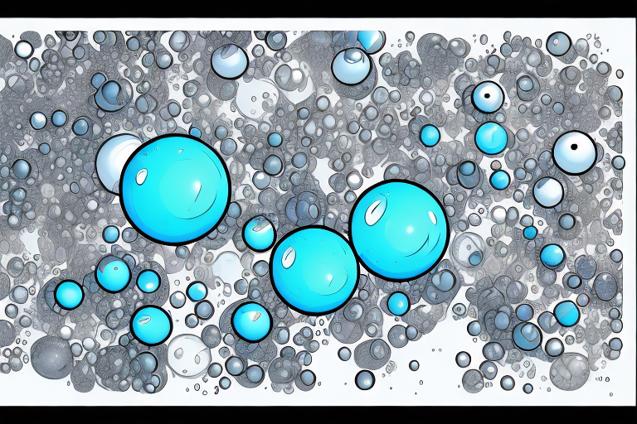
Discover the importance of proper hydration while sailing and learn how to maintain optimal health and performance on your next adventure.
The Importance of Hydration for Sailing Nutrition
As you embark on your sailing adventure, leaving the rat race behind and embracing the open sea, it’s essential to prioritize your health and well-being. One crucial aspect of maintaining a healthy lifestyle while sailing is proper hydration. In this article, we will explore the importance of hydration for sailing nutrition, discuss how to stay adequately hydrated, and provide tips for meal planning that will help you maintain optimal hydration levels.
Why Hydration Matters
Staying hydrated is vital for everyone, but it’s especially important for sailors. The combination of sun exposure, wind, and physical activity can quickly lead to dehydration if you’re not careful. Dehydration can have severe consequences, including:
- Decreased energy levels
- Impaired cognitive function
- Reduced physical performance
- Increased risk of heat-related illnesses, such as heat exhaustion and heatstroke
- Increased risk of kidney stones and urinary tract infections
Proper hydration is essential for maintaining optimal health and performance while sailing. It helps regulate body temperature, supports digestion and nutrient absorption, and aids in waste elimination. Additionally, staying hydrated can help prevent seasickness and reduce the severity of its symptoms.
How Much Water Do You Need?
The amount of water you need to stay hydrated depends on several factors, including your age, weight, activity level, and the climate you’re sailing in. As a general guideline, the National Academies of Sciences, Engineering, and Medicine recommends a daily water intake of about 3.7 liters (125 ounces) for men and 2.7 liters (91 ounces) for women. This includes water from all sources, such as beverages and food.
However, these recommendations may not be sufficient for sailors, as the unique conditions of sailing can increase your water needs. Factors that can affect your hydration requirements while sailing include:
- Temperature: Hotter temperatures can cause you to sweat more, increasing your water needs.
- Humidity: High humidity can make it harder for your body to evaporate sweat, which can lead to increased water loss.
- Wind: Wind can increase the rate of evaporation from your skin, leading to increased water loss.
- Sun exposure: Prolonged sun exposure can increase your risk of dehydration, as it can cause you to sweat more and lose more water through your skin.
- Physical activity: Sailing often involves a lot of physical activity, which can increase your water needs.
To account for these factors, you may need to increase your water intake while sailing. A good rule of thumb is to drink at least 1 liter (34 ounces) of water for every hour of moderate activity in a temperate climate. In hotter or more humid conditions, you may need to drink even more.
Tips for Staying Hydrated
Here are some practical tips to help you stay hydrated while sailing:
- Carry a reusable water bottle: Having a water bottle on hand makes it easy to sip water throughout the day. Choose a bottle with a built-in filter if you’re concerned about water quality.
- Set hydration reminders: Use a smartphone app or set alarms to remind you to drink water regularly.
- Monitor your urine color: A well-hydrated person’s urine should be pale yellow. Darker urine can be a sign of dehydration.
- Drink before you’re thirsty: Thirst is not always a reliable indicator of hydration status. Make a habit of drinking water regularly, even if you don’t feel thirsty.
- Replace electrolytes: When you sweat, you lose not only water but also essential electrolytes like sodium, potassium, and magnesium. Consider using an electrolyte replacement drink or adding a pinch of sea salt to your water to help replenish these vital nutrients.
- Avoid excessive caffeine and alcohol: Both caffeine and alcohol can have a diuretic effect, causing you to lose more water through urine. Limit your intake of these beverages to help maintain proper hydration.
Meal Planning for Optimal Hydration
In addition to drinking water, you can also support your hydration needs through your diet. Here are some tips for meal planning that will help you stay hydrated while sailing:
- Incorporate water-rich foods: Many fruits and vegetables have high water content, which can help you stay hydrated. Examples include watermelon, cucumber, oranges, strawberries, and lettuce. Incorporate these foods into your meals and snacks to boost your water intake.
- Choose hydrating beverages: In addition to water, other beverages can contribute to your hydration needs. Herbal tea, coconut water, and milk are all good options. Avoid sugary drinks, as they can contribute to dehydration.
- Plan for electrolyte replacement: As mentioned earlier, it’s essential to replace the electrolytes you lose through sweat. Incorporate foods rich in sodium, potassium, and magnesium into your meal plan. Examples include bananas, avocados, leafy greens, nuts, and seeds.
- Prepare easy-to-digest meals: Heavy, greasy, or spicy foods can be harder to digest and may contribute to seasickness. Opt for lighter, more easily digestible meals to support your hydration needs and overall well-being.
Conclusion
Proper hydration is a crucial aspect of sailing nutrition. By understanding the importance of hydration, knowing how much water you need, and following the tips provided in this article, you can ensure that you stay adequately hydrated and maintain optimal health and performance while sailing. So, as you set sail on your adventure, remember to prioritize hydration and make it an integral part of your daily routine.